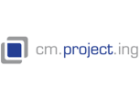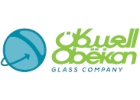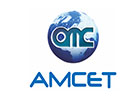Verallia is considering closing a furnace at its Essen, Germany site after a drop in glass demand.
Cited from annual report 2023 by CEO Patrice Lucas "
Our main takeaway on the activities is:
2023 decline in glass demand was unprecedented and led by destocking; Post-COVID supply chain disruption has given low short-term visibility in a usually predictable industry. For 2024, with the latest information we have, we confirm a gradual recovery from 2023, but at a slower pace than expected due to the end consumption forecast revised down, meaning that destocking will still impact H2. This is why, having this new set of data in hand, we have decided to revise our forecast for 2024 based on this lower activity. And to be more specific, our initial assumption for 2024 was to have a Q2 close to last year, an H2 up H1 2024 up low-teens, giving a full year up low-to-mid single digit. Now, based on Q2 being down low-to-mid single digit, our new volume assumption for H2 is up high single digit for full- year being flat to slightly down.
However, the important point for the semesters to come is that glass demand is expected to return to more stable growth and visibility as it reconnects with the end consumption. Facing this lower activity recovery, we have strengthened our action plan with determination a nd here you have as a summary some of the key actions in place. On pricing, despite the challenging environment, we are maintaining our tight pricing policy.
We are continuing focus on value-based pricing. On capacity adjustment, right now, we are running at 10% capacity down for inventory control. And we are doing that in a smart way, with a mix of extended cold repair and temporary line shutdowns but taking mostly the benefit of our cold stops. On capacity shutdown, we have decided as well to stop one furnace in Essen, because here we see something much more structural, and we have close to 90 redundancies for a one-off restructuring cost of €10 million.
Glass International can be cited: The French container glass manufacturer reported a revenue drop of 17.6% compared to the same period last year.
The group said demand continued to increase but at a slower rate than first anticipated.
CEO Patrice Lucas told analysts that the destocking period, which had begun in early 2022 after the invasion of Ukraine, was lasting longer than expected.
In its latest financial note the group reported revenue of €1,765 million in H1 2024, 17.6% lower compared to H1 2023.
In Northern and Eastern Europe, half-year volumes were considerably lower than last year, impacted in particular by the strong decline in Q1 and more generally by the weakness of beer and non-alcoholic beverages activity in Germany and the spirits sector in the UK. As a result it may close one of three furnaces at its Essen glassworks in Germany and started discussions with the works council there earlier this year. In Southern and Western Europe, volumes saw a slight sequential improvement during the half-year.
However, they remained down compared to H1 2023, with a sharp decline in non-alcoholic beverages, affected by unfavourable weather conditions (carbonated soft drinks, fruit juices). In its outlook for the rest of the year it said: “After 2024 started in line with our expectations, recovery in demand was confirmed in the second quarter in most markets in which Verallia operates.
“This recovery is however slower than anticipated and we estimate that activity in the second half should continue to improve at a slower pace than we initially expected.”



























